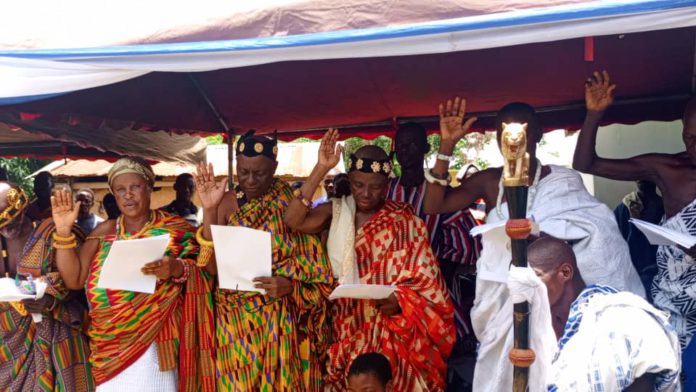The President of Adele Traditional Council in the Nkwanta South of the Oti Region, Nana Asete Mensah II, has pledged to work closely with chiefs in the area to ensure peaceful coexistence among the people.
In his speech during the inaugural ceremony at Tutukpene, Nana Asete Mensah II emphasized the importance of unity and cooperation among traditional leaders to promote development and harmony within the community.
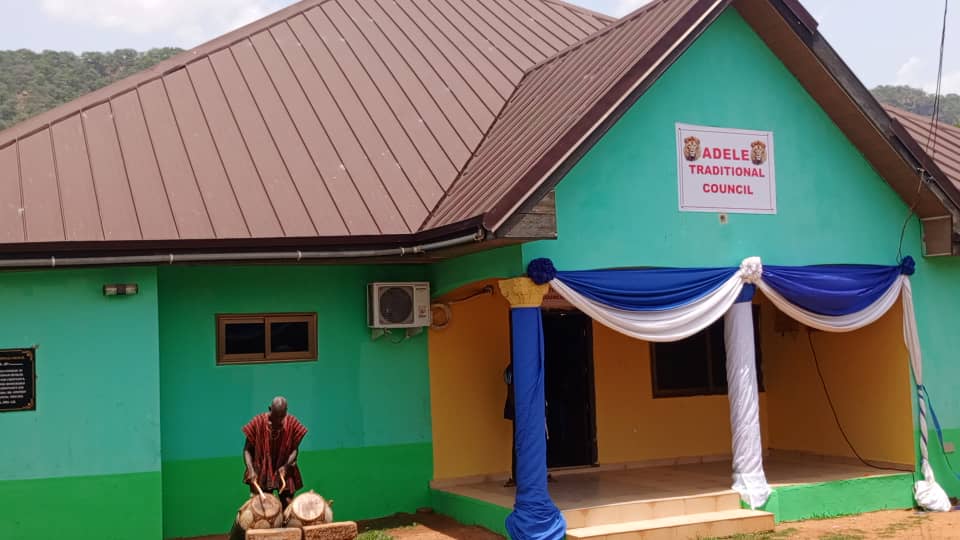
He stressed the need for chiefs to set aside their differences and work together towards a common goal of progress and prosperity for all.
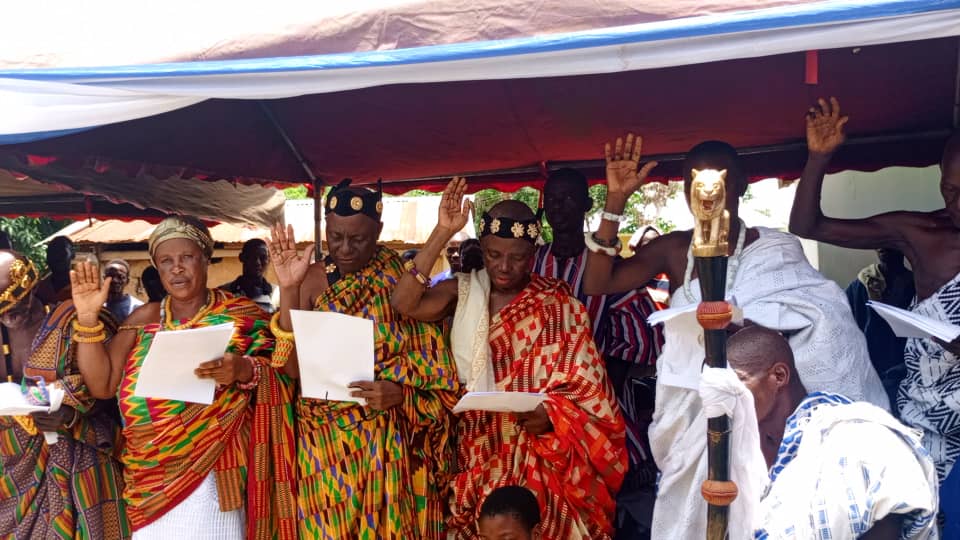
Nana Asete Mensah II also called on the people of Adele to support their traditional leaders and work together towards building a strong and vibrant community.
He urged them to embrace peace and dialogue as the key to resolving conflicts and differences in a peaceful and constructive manner.
The President of Adele Traditional Council expressed his commitment to fostering a culture of peace and understanding among the people, and assured that he would work tirelessly to promote unity and cooperation among chiefs in the region.
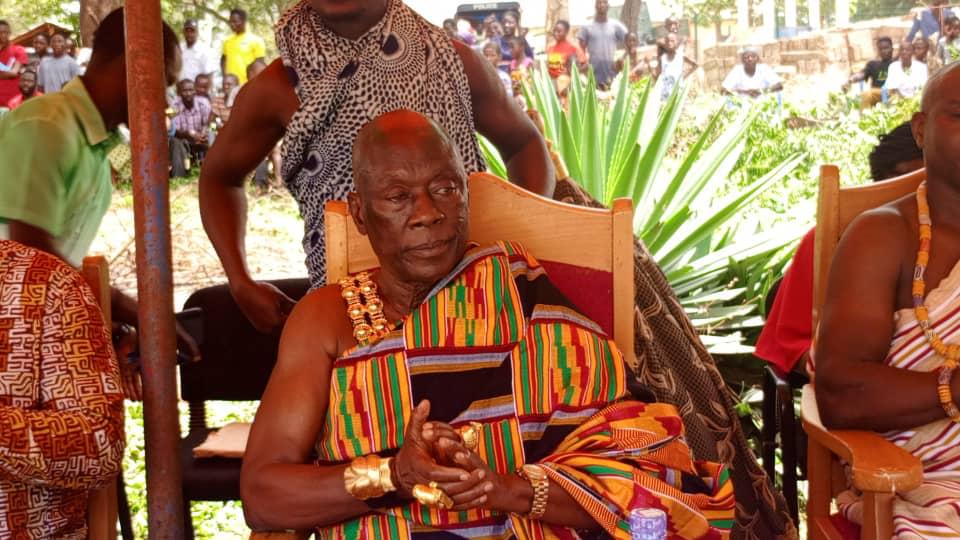
Speaking at the event, Nana Mprah Besemuna, President of the Oti House of Chiefs commended President Nana Akufo-Addo and the Ministry of Chieftaincy and Religious for the creation of the Oti Region and additional traditional council which was already lacking members.
He said the Ministry of Chieftaincy and Culture had played a crucial role in ensuring a smooth transition and successful event.
Nana Mprah Besemua stressed the importance of unity and peace within the Traditional Council.
He urged the chiefs and elders to work together for the betterment of their community and to uphold the traditions and values of their ancestors.
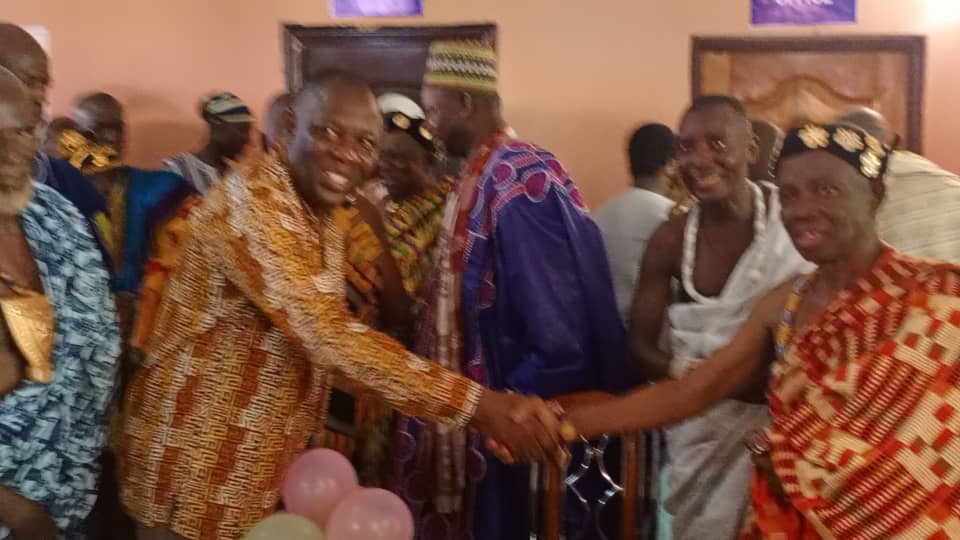
On his part, the Director in charge of Research, Statistics and Information Management, Richard Fedieley who led delegation from the Ministry to perform the inauguration of the traditional council on behalf of the minister of Chieftaincy and Religious Affairs Stephen Asamoah Boateng said chiefs would have to effectively deliver administrative and judicial roles, and must keep knowledge of methods and tools of alternative conflict resolution.
He said the government, recognizing the role of traditional authority in national development, continued to hold the chieftaincy institution in high esteem, and needed the advancement of traditional councils to help position traditional authority effectively.

